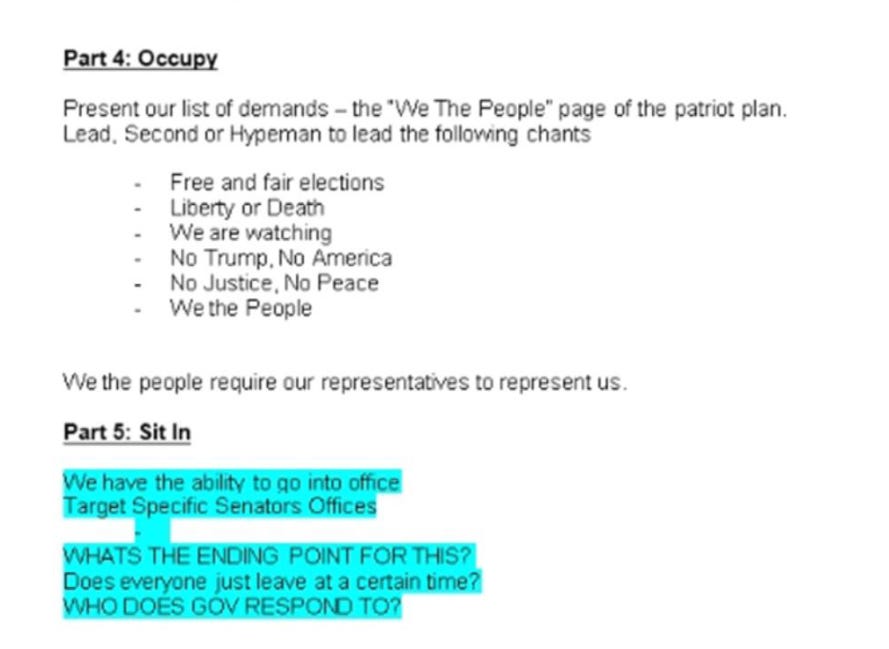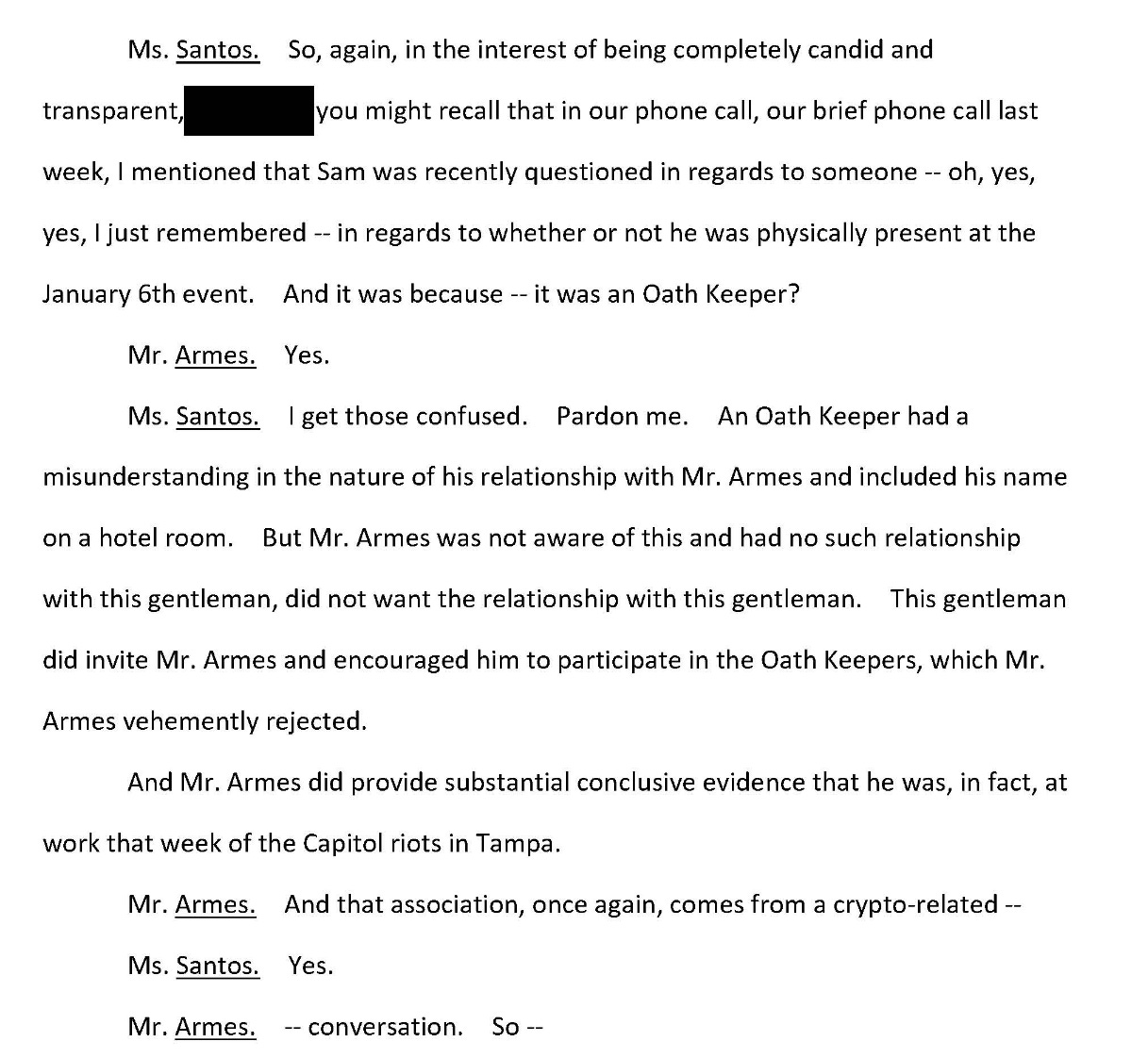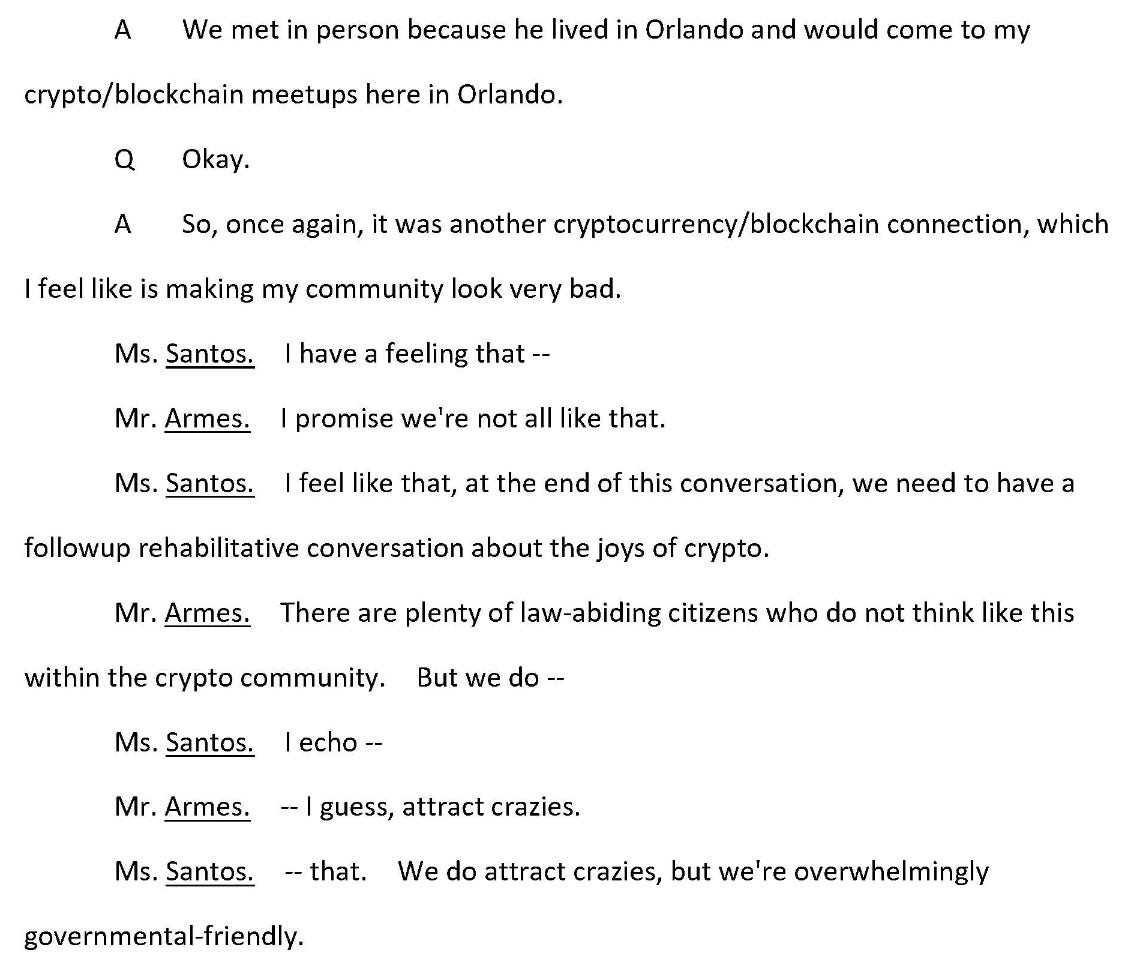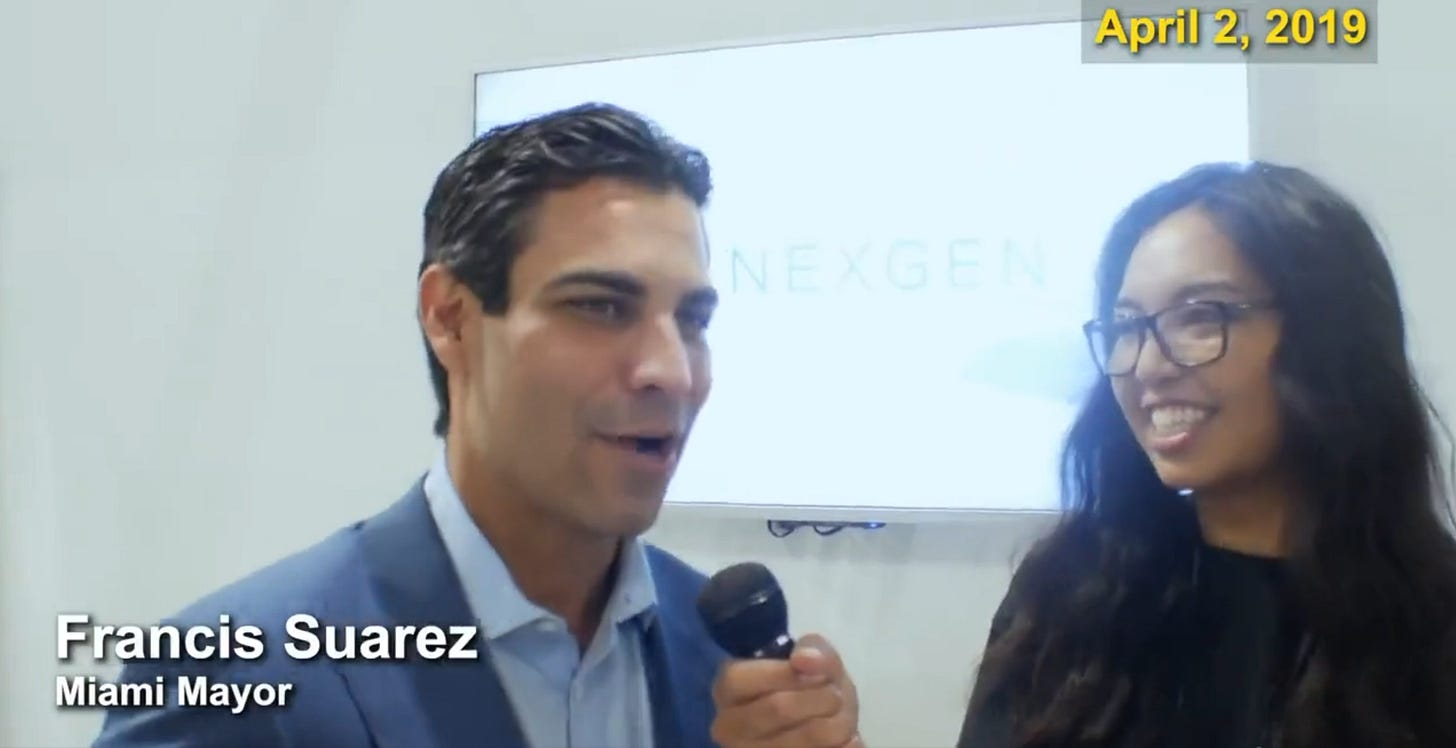“I promise we’re not all like that”
Right-wing extremists have embraced South Florida’s crypto scene and Governor Ron DeSantis.
Florida Governor Ron DeSantis’ recent presidential campaign announcement on Twitter Spaces was a disaster – a drawn-out farrago of technical snafus as Elon Musk and his consiglieri David Sacks struggled to fix the site whose infrastructure they had gutted. After the stream was finally underway, Sacks, Musk, and some friendly questions from the audience prompted DeSantis to tick off his list of culture war grievances, from Disney to DEI. When Sacks teed the governor up with a question about crypto, DeSantis, perhaps conscious of speaking to a very online, Musk-loving audience, offered the kind of tribute to digital currencies that has become standard on the Republican right.
“You have every right to do Bitcoin,” said DeSantis. “The only reason these people in Washington don’t like it is because they don’t control it.”
In DeSantis’ telling, crypto represents a challenge to bureaucratic master-planning and government control over the economy. Adopting coiner rhetoric, he emphasized Bitcoin’s subversive potential.
“Bitcoin represents a threat to them,” said DeSantis. “As president we'll protect the ability to do things like Bitcoin.”
As suggested by his “do Bitcoin” phrasing, DeSantis probably doesn’t have much direct experience with crypto. But he’s taken it up as a political cause, leveraging its popularity among right-wing voters who are either coiners themselves or who are sympathetic to its libertarian, anti-government ideological underpinnings. Touting Bitcoin as a tool for freedom – as presidential candidates Robert F. Kennedy Jr. and Vivek Ramaswamy recently did at the annual Bitcoin Conference in Miami – is a sure way to activate an increasingly online Republican base and to pull in donations from single-issue voters.
CBDCs – or Central Bank Digital Currencies – have come to occupy a similar political role. Essentially a digital dollar (or Euro or Renmimbi), a CBDC is a digital currency issued directly from a government’s central bank, potentially enabling fast settlement, easy distribution of social benefits, and more flexible monetary policy. It is also, critics fear, a tool of social control, and the typical right-wing narrative describes CBDCs as an ominous step toward a Chinese-style social-credit system. The U.S. may already have many of the elements of a social-credit system in place – credit scores, consumer surveillance, a multi-billion trade in personal data, coercive algorithms – but for coiners, a CBDC is a step too far. (China is one of dozens of countries experimenting with CBDCs.)
That’s why DeSantis has been among the leading U.S. politicians speaking out against a CBDC, even though a governor has practically no influence over the issuance of currency or monetary policy. In May, DeSantis signed a bill banning CBDCs, a move with tenuous legal standing but one that cemented his profile with crypto enthusiasts. Several other states may soon do the same. Using his typical blinkered political rhetoric, DeSantis called CBDCs a product of “woke politics.”
Florida’s CBDC ban was broadly celebrated on the right, including by Samuel Armes, a Florida-based crypto lobbyist who has taken credit for the bill’s passage. Armes has repeatedly referred to the legislation as “our bill” and touted his meetings with Florida state officials in the leadup to the bill’s passage. “To understand the Anti-CBDC Bill, you must first understand that [it] is a political play first, and a policy play second,” Armes wrote on his Substack. “Desantis’ Anti-CBDC bill put him on the forefront of “Freedom & Liberty” based policies, showing that he does not support an authoritarian surveillance state.”
You don’t need to wade deeply into DeSantis’ initiatives to allow cops to check people’s genitals in bathrooms or to investigate teachers for showing Disney movies to know that this freedom-and-liberty mantra is bullshit. If anything, DeSantis has shown himself to be a petty authoritarian in practice, devoting his political energies to culture war issues that invariably require the state to interfere in family life, classroom education, and people’s most personal health matters. His version of freedom is ideological and circumscribed, enforced by local police and state bureaucrats.
These contradictions don’t seem to matter to Armes and other coiners in Florida, who have gravitated toward DeSantis and Miami Mayor Francis Suarez as like-minded defenders of economic freedom. Together, DeSantis and Suarez have made Florida a redoubt for a fintech industry that’s been stumbling through a year-long “crypto winter.” The corporate offices reserved for FTX and Blockchain.com in Miami might be empty, but the mayor still takes his salary in Bitcoin and this year’s Bitcoin Conference attracted thousands of attendees.
Armes helped establish himself through his involvement in South Florida’s crypto scene, which has also attracted a number of right-wing political extremists, some of them with ties to the January 6 riot at the U.S. Capitol. Among crypto diehards, right-wing extremists have found some ideological fellow-travelers. And with organizations like the Proud Boys cut off from many mainstream banks and finance apps, crypto has also become a putative replacement for Venmo and Visa.
[Screenshot of 1776 Returns document]
Samuel Armes might be familiar to some readers less because of his political lobbying than from his appearance in the January 6 Committee Report. Armes, who is 26, was interviewed by committee investigators who were looking into “1776 Returns,” a planning document that circulated among Proud Boys members, including its leader Enrique Tarrio, in the leadup to the January 6 riot. The document contained logistics and battle plans for seizing control of government buildings and demanding a new presidential election. According to Eryka Gemma, the self-proclaimed “godmother” of Miami’s crypto scene who was also interviewed by committee investigators, Armes wrote the document and sent it to Gemma, who he asked to pass it along to Tarrio, who she was dating. On December 30, 2020, Gemma, who is also known as Erika Gemma Flores, sent Tarrio a document called “1776 Returns.”
“She’s just blame-shifting,” Armes said to investigators. “I mean, she’s just throwing me under the bus.”
Armes’ interview with the January 6 committee is a bizarre text – an evasive and at times hilarious conversation with a grubby political operator who repeatedly claims he has nothing to do with right-wing extremists, despite being seemingly surrounded by them in his professional and personal life. From the beginning, Armes appears to inflate his credentials while also disavowing any influence he might have had on the Proud Boys and other rioters.
Armes studied at the University of South Florida, where he earned his undergraduate degree in 2018. “I was being groomed to work for the CIA and the FBI,” he told investigators. He claimed that he did work for the State Department and Special Operations Command – which, upon further questioning, sounds like a college internship.
In 2017, before he finished college, Armes decided to become a crypto lobbyist in Florida, founding the Florida Blockchain Business Association. He dedicated himself to “passing crypto/blockchain-friendly legislation in the State of Florida.”
Armes also worked as a legislative affairs director for Joel Greenberg, who was the Seminole County Tax Collector. The two formed a company together called Government Blockchain Systems LLC. Last year, Greenberg was sentenced to 11 years in prison after pleading guilty to a half dozen charges, including sex trafficking minors and wire fraud. Greenberg cooperated with a federal sex trafficking investigation into Representative Matt Gaetz, who allegedly hosted sex parties with Greenberg. Some young women were paid. One attendee may have been 17. (The payments included some now infamous Venmo transactions that Gaetz labeled for “school” or “tuition.”)
[Screenshot of 1776 Returns]
In his committee interview, Armes said that he first heard about the 1776 Returns document from committee investigators. But 1776 Returns did trace its origins to Armes. In August 2020, Armes told the committee, he wrote up a memo and shared it with Gemma on Google Drive. Armes described his text as just a bit of wargaming, the musings of a would-be defense intellectual.
“It was not specific to any group,” he said. “It was just how I thought things might happen in a scenario where a certain President doesn't leave the White House or there is just mad chaos in the streets because no one knows who's in charge.”
Some of the text and images from that document were copied and pasted into 1776 Returns. Armes ended up going through 1776 Returns page-by-page with investigators, acknowledging some parts as his own and disclaiming others.
The document included Google Maps screenshots with pinpointed locations where rioters might gather. Armes repeatedly told investigators it was just a general exercise, not connected to any plan or party.
Eryka Gemma, the conduit for the 1776 Returns plan, was deeply involved in Armes’ work. “Anything that I have done, cryptocurrency, blockchain, normally, if it's in Miami, she would be someone that I consulted with,” he told the January 6 committee. “And as a board member, she was actively advertising my association and her people to join in the Miami region.” At one point in the interview he said, “Erika and I were business partners.”
Armes met Proud Boys leader Enrique Tarrio through Gemma. Tarrio participated in a popular group chat for Miami crypto people that counted Armes and others as participants. After investigators inquired about the Telegram group, and whether Armes could provide message logs, Anessa Santos, Armes’ lawyer, chimed in to say that as a prominent crypto lawyer, she was a part of many crypto Telegram groups, including the one with Tarrio and Gemma. Santos could provide the chat logs.
That’s when, during a sensitive point in his interview with government investigators, Armes suddenly fell to the ground in what appeared to be one of the most unsubtle guy-fakes-a-medical-incident scenes in recent memory.
The show continued. Armes, who on his Linktree account identifies himself as a “bodybuilder,” started bragging about his weight-lifting feats. (Online videos confirm that Armes is indeed swole.)
Whether the interruption was planned or not, it didn’t stop the flow of questioning. Armes cooperated but frequently responded with vague answers and generalities – i.e. I don’t know, I can’t recall, I was just thinking about a scenario that other people might engage in. He described his wargaming memo as both based on his expert training and government experience but also a fanciful act of “extrapolation,” not an operational plan.
Armes denied having any association with the Proud Boys or other militia groups. But as his lawyer explained, Armes was once invited to join the Oath Keepers.
Armes met the Oath Keeper, who he named as James Beeks, through the crypto world. Beeks invited Armes to join him in Washington DC on January 6 and put his name on a hotel reservation. “He viewed me as a romantic potential,” Armes told investigators. He said he had no interest and tried to distance himself from Beeks’ radical politics. But he admitted that he had met Beeks socially at blockchain events and that they talked about the Oath Keepers’ esoteric belief system, including that “our entire government was fake.”
Beeks was one of a number of Oath Keepers charged with felonies related to the January 6 riot. Several have been found guilty of seditious conspiracy, including group leader Stewart Rhodes, who was sentenced to 18 years in prison, and Kelly Meggs, who headed the Oath Keepers’ Florida chapter. On June 1, two Oath Keepers, one of whom had acted as a bodyguard for Roger Stone before joining the Capitol melee, were sentenced to four-and-a-half and three year prison terms.
Beeks’ trial is set to begin on July 10. A musical theater actor, he was arrested in November 2021 in Minneapolis, where he was on tour for “Jesus Chris Superstar.” He was playing Judas. During his arraignment, Beeks told the court that he had “divine authority” that made him ungovernable. “That’s all gobbledygook,” the judge said.
Beeks has denied membership in the Sovereign Citizen movement, but he repeatedly uses its rhetoric and symbolism. After telling a judge that “I cannot represent myself because I am myself,” he has since changed his mind, firing his public defender and announcing that he would defend himself. Beeks, who wore a jacket from Michael Jackson’s BAD tour while helping breach the Capitol, stamped legal filings with his own crest, which announced him as part of House of Edwards, Florida.
[Screenshot from Law & Crime]
The teetering pile of esoteric titles and apocryphal references is standard Sovereign Citizen signaling. Elaborate revisionist histories and conspiracy theories are a bonding agent for right-wing extremists, providing a common culture and a shared list of grievances. If the whole thing is an elaborate act of roleplay, then it needs its lore and world-building to sustain the game.
In an interview with an Orlando news station earlier this year, Beeks, who is 49, denied having any extremist beliefs or really any political ideology. He didn’t know much about the Oath Keepers when he joined them and didn’t associate with them after January 6.
“I wasn’t there to overthrow the government or anything like that,” said the man who joined a military-style “stack” of militia members breaching Capitol doors. “I’m just a man that was in the wrong place at the wrong time.”
[Screenshot of Eryka Gemma interviewing Mayor Francis Suarez via BecauseMiami]
Armes hasn’t been charged with any crimes, nor has Eryka Gemma, the Miami crypto entrepreneur and social maestro who sent the 1776 Returns document to Tarrio. After Gemma’s role in the January 6 investigation became public, she locked her Twitter account. The former Ron Paul delegate has described herself as a fan of Austrian economics and her Twitter profile includes the hashtag “#sovereign.” She has a pilot’s license and has been credited with getting Mayor Suarez up to speed about Bitcoin. The right-wing coiner and the Bitcoin bro mayor have been photographed together at public events, including at the 2019 opening of the Blockchain Center, a crypto incubator in downtown Miami.
After the 2020 presidential election, Gemma attended Stop the Steal events with members of the Proud Boys and shared plans to be in DC on January 6. “ill be in the District of Communism on the 6th with @ToneVays @thetruechannel1 and other friends who all were deleted from social media,” she tweeted on January 4, 2021. “DM me if you’re attending.” Tone Vays is a popular crypto influencer who attended the January 6 Stop the Steal rally in DC, where he livestreamed from outside the Capitol. While there, Vays posted a celebratory tweet. Gemma responded with one word: “Amazing.”
Gemma has scrubbed some of her political tweets, including about January 6. But her regard for the governor might be reflected in 1776 Returns, which ends with a “special mention,” a shoutout from the Capitol insurrectionists to the movement’s enemies and heroes. First, there’s a warning to Mitch McConnell, Kevin McCarthy, Mike Pence, and, naturally, Bill Gates: “we the people are watching you.” That’s followed by a note to Ron Paul and Ron DeSantis. The document’s authors – whoever they might be – are clear about where their affinities lie, telling the past and future presidential candidates: “We the people love you.”
[Screenshot of the last page of 1776 Returns]












